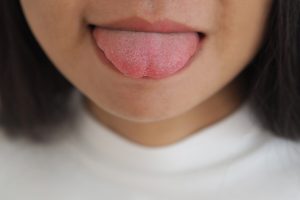Brushing your teeth is an important habit to develop when it comes to caring for your mouth. It serves as the first line of defense against plaque buildup, tooth decay, and gum disease. It is important to brush, but sometimes people are not aware of the mistakes they are making that could actually be hurting their teeth and gums. For more such recommendations, however, it is always better to visit a dental clinic in Penhold.
This blog will discuss a number of typical brushing errors, their causes, and ways to prevent them for healthier teeth and a more radiant smile.
1. Brushing Too Hard
It’s easy to think that the harder you brush, the more your teeth will be clean, but this is actually a mistake. Brushing too hard could cause damage to your gums and enamel over time. Enamel is the protective layer on your teeth, and once it is worn away, it doesn’t grow back. Brushing too aggressively can also cause your gums to recede, which can lead to sensitivity to cold and hot food and drink and a greater risk of getting cavities.
How to rectify that?
- Use a toothbrush with soft bristles and apply softly.
- Let the bristles do the work.
- Avoid applying too much pressure and instead make tiny circular movements. This will assist in cleaning your teeth without harming your enamel or gums.
2. Not Brushing Long Enough
If you are in a rush, it can be tempting to quickly brush your teeth, but if you don’t spend enough time brushing your teeth, you could leave plaque behind, which can lead to cavities and gum issues. This is enough time to clean all surfaces of your teeth, including the backs as well as the chewing surfaces.
How to rectify that?
- Use a timer for two minutes, or you can find a toothbrush with an embedded timer that can measure two minutes so you’re sure you’re brushing long enough.
- To avoid hurrying the brushing process, you might also split your mouth into four quadrants and brush for 30 seconds on each.
3. Using the Wrong Toothbrush
Not every toothbrush is made alike. Some toothbrushes will have hard bristles that can irritate your gums, while others might just be too big for your mouth to reach the back. Using a toothbrush made for your mouth is essential to your oral hygiene.
How to rectify that?
- Thorough, soft bristles are good for removing plaque and are gentle on your gums.
- Also, use a toothbrush that is comfortable in your hand and can reach every area of your mouth. If you are unsure which toothbrush to use, ask your dentist.
4. Brushing Right After Eating
You might feel like brushing right after a meal is the best way to freshen your breath, but this could actually harm your teeth. When you eat, especially foods and drinks that are acidic (like citrus fruits, soda, or coffee), your enamel softens temporarily. Brushing your teeth right away can wear down the softened enamel.
How to rectify that?
- Brushing your teeth at least 30 minutes after eating.
- Your saliva will have more time to counteract the acids and restore enamel hardness.
- To help get rid of food particles and acids, you can rinse your mouth with water in the meantime.
5. Not Replacing Your Toothbrush Regularly
An outdated toothbrush is less effective in cleaning than a brand-new one. Over time, the bristles of your toothbrush wear down, and they can become frayed or misshaped. This means they’re not able to clean your teeth properly, and they can also be harder on your gums.
How to rectify that?
- Every three to four months, or sooner if the bristles start to fray or get worn, replace your toothbrush.
- If you’ve been sick, it’s a good idea to replace your toothbrush to avoid reintroducing germs into your mouth.
6. Brushing Your Teeth Too Often
While brushing your teeth is essential, brushing too often or too aggressively can be just as harmful as not brushing enough. Over-brushing can lead to enamel erosion, tooth sensitivity, and gum recession. In some cases, it might even cause more plaque to form because your body may respond to the damage by increasing plaque production as a protective measure.
How to rectify that?
- Make it a habit to clean your teeth twice a day, before bed and in the morning.
- If you feel the need to freshen your breath during the day, use mouthwash or chew sugar-free gum instead of brushing.
7. Brushing Only the Front of Your Teeth
Most people focus on the front of their teeth because that’s what people see when they smile, but neglecting the back surfaces can lead to cavities and gum disease. It’s just as crucial to keep the back of your teeth clean as the front. Plaque builds up in all areas of your mouth, not just the ones you can easily see.
How to rectify that?
- When brushing, make sure to clean all surfaces of your teeth, including the chewing surfaces and the inside surfaces of your teeth.
- Use a proper brushing technique that includes cleaning the inside of your molars and the backs of your teeth, which are often overlooked.
8. Skipping Your Tongue
Did you know that bacteria can also accumulate on your tongue? While brushing your teeth is important, neglecting to clean your tongue can leave bacteria in your mouth, leading to bad breath and other oral health issues.
How to rectify that?
- Gently brush your tongue with your toothbrush or use a tongue scraper to remove bacteria and food particles.
- Doing this as part of your daily routine will help freshen your breath and promote better overall oral hygiene.
9. Using a Toothpaste That Isn’t Right for You
There are so many types of toothpaste on the market, from those designed for sensitive teeth to those that claim to whiten your teeth. It’s important to choose a toothpaste that suits your specific oral health needs. Some people may need a toothpaste that fights cavities, while others might need a fluoride-free option.
How to rectify that?
- Choose a toothpaste that’s approved by a good dental organization and meets your oral health needs.
- If you have sensitive teeth, look for toothpaste formulated for sensitive gums. If you’re unsure which toothpaste is best for you, consult with your dentist for guidance.
Brush Smart, Live Bright!
Brushing your teeth is a simple yet vital part of keeping your smile healthy. By avoiding common brushing mistakes, you can ensure that you’re protecting your teeth and gums from unnecessary harm. Remember to brush gently, use the right toothbrush, and wait before brushing after eating. With the proper brushing habits, you’ll be well on your way to maintaining a bright and healthy smile for years to come.
If you have any concerns about your brushing technique or need a professional cleaning, don’t hesitate to schedule an appointment with Penhold Dental Care, having a trusted dentist near you. Our team of experienced professionals is here to help you maintain optimal oral health. Keep smiling, and keep brushing the right way!










